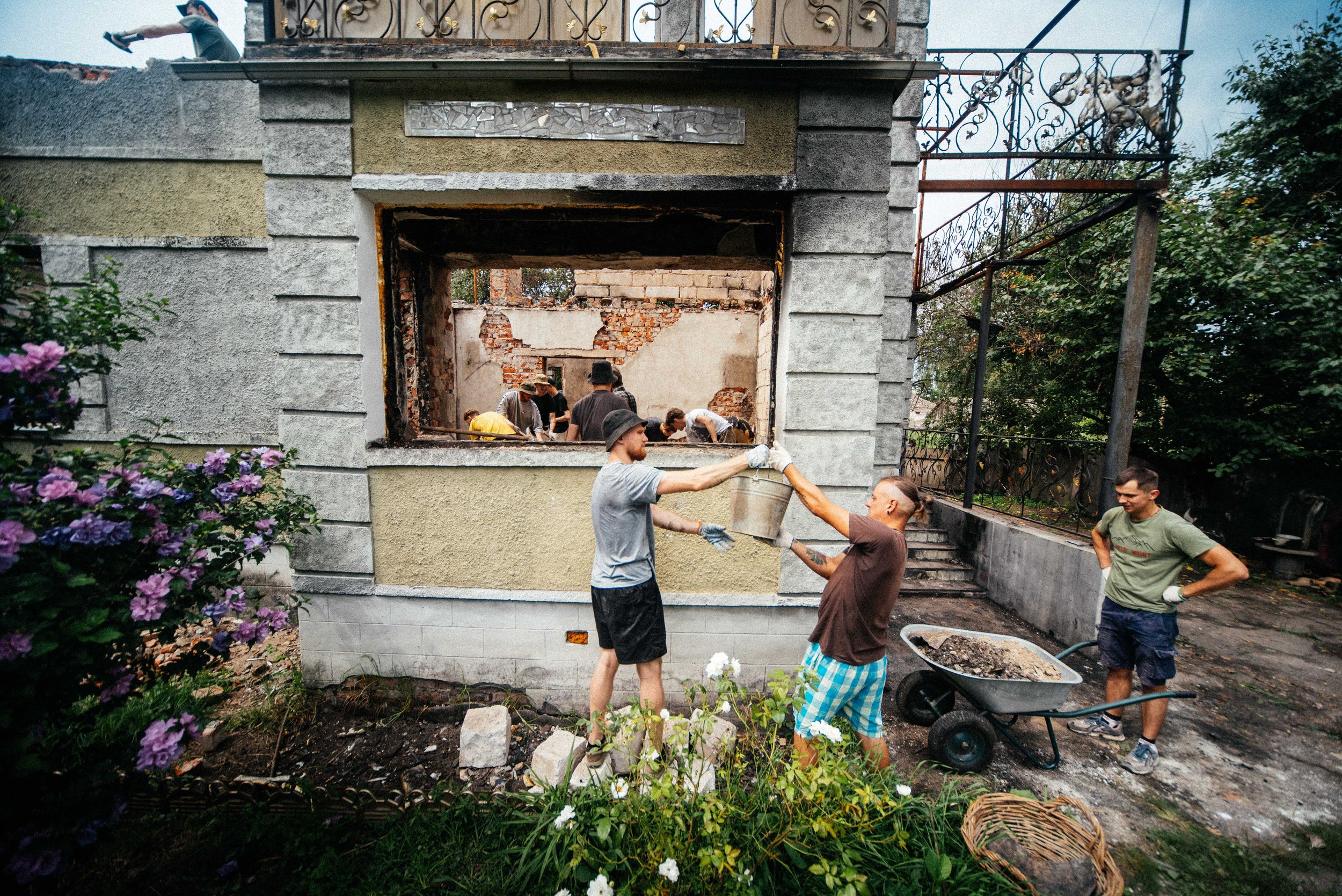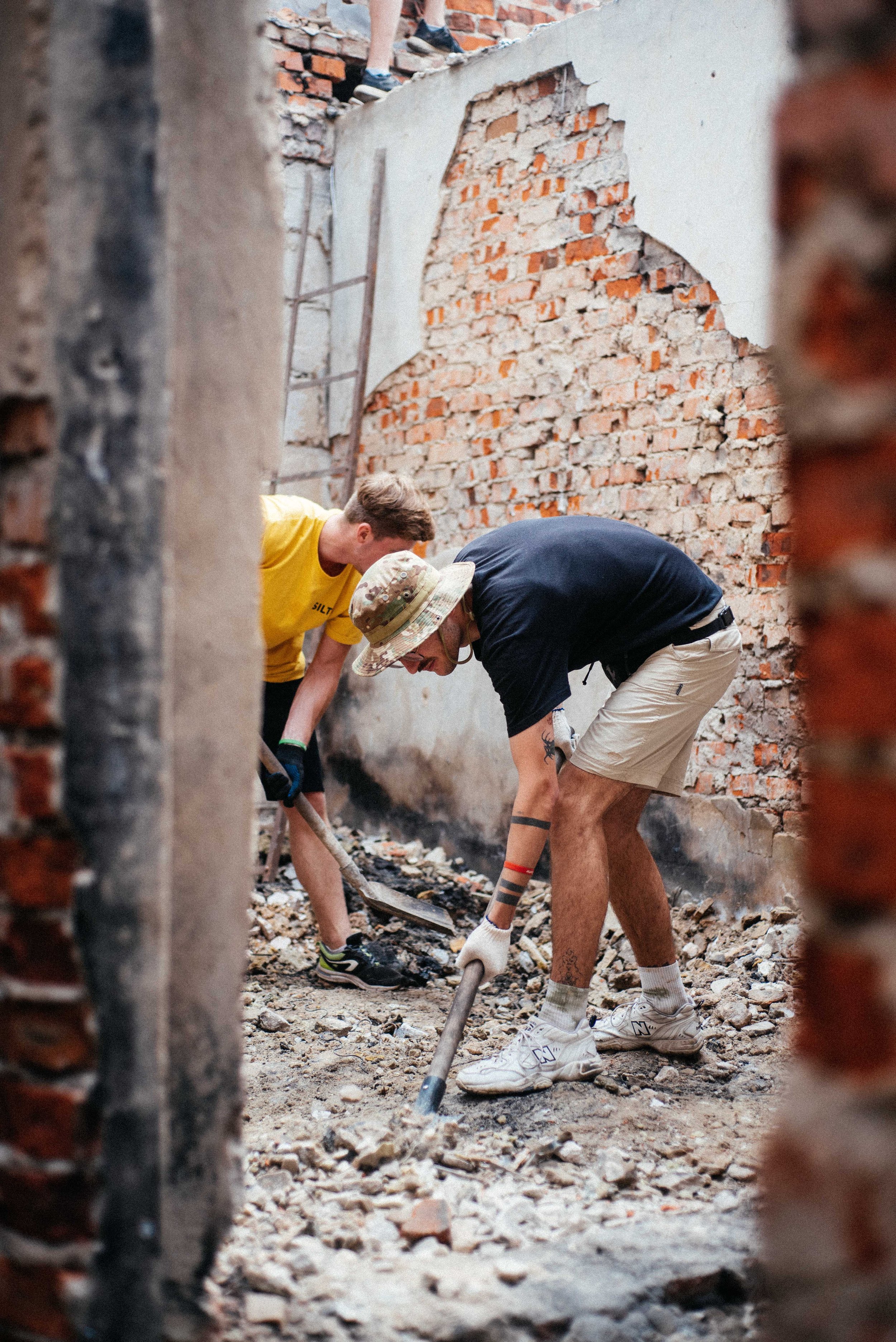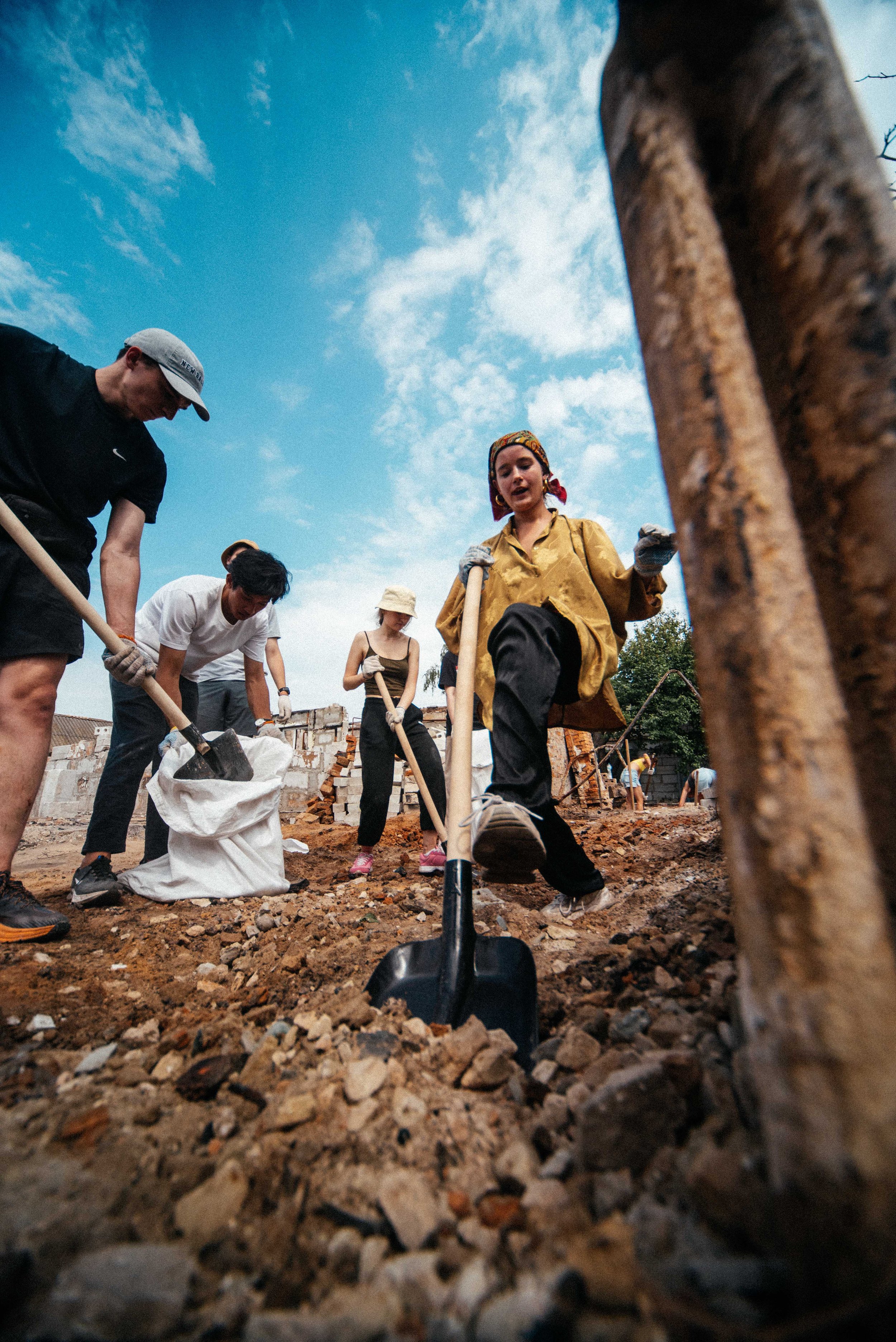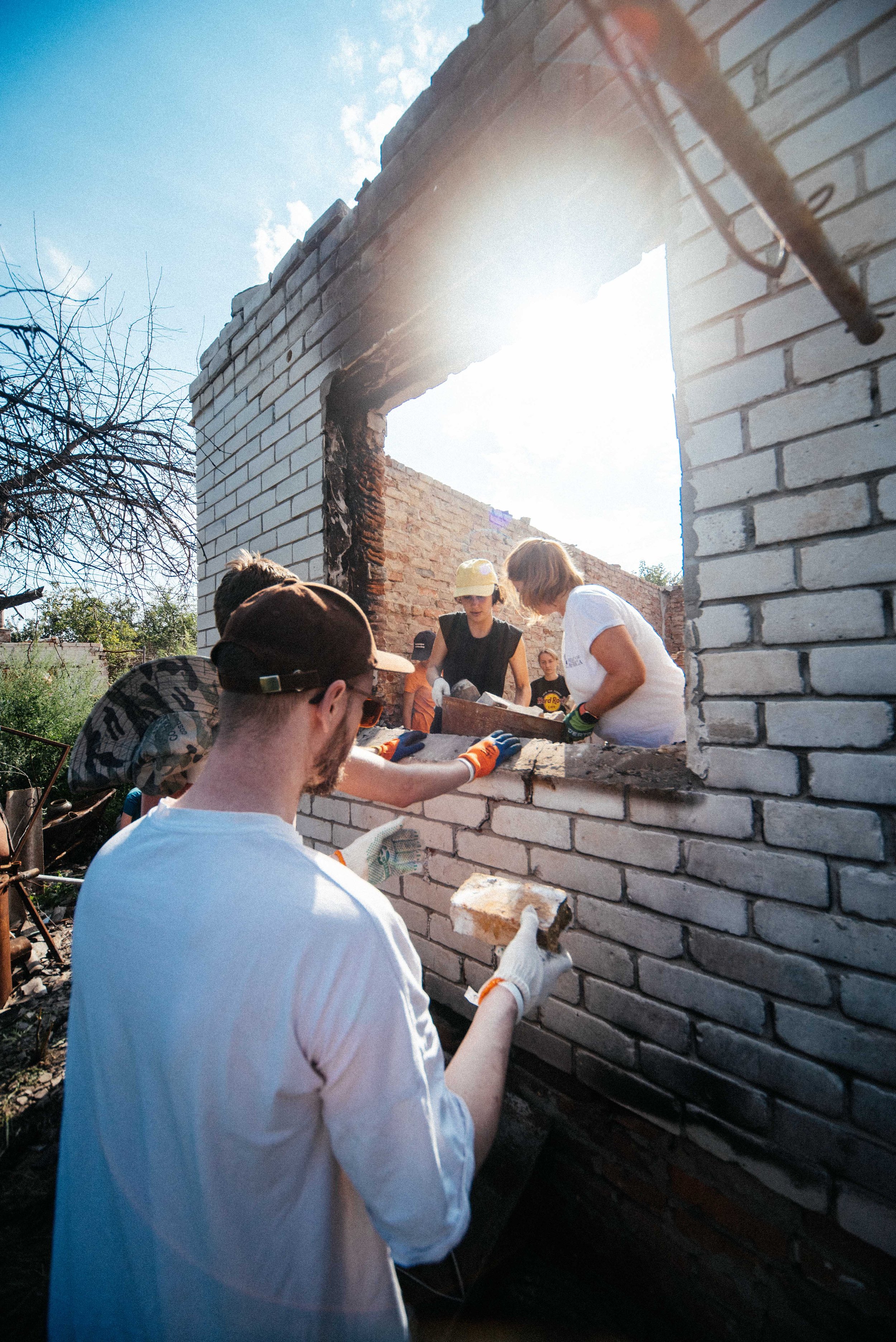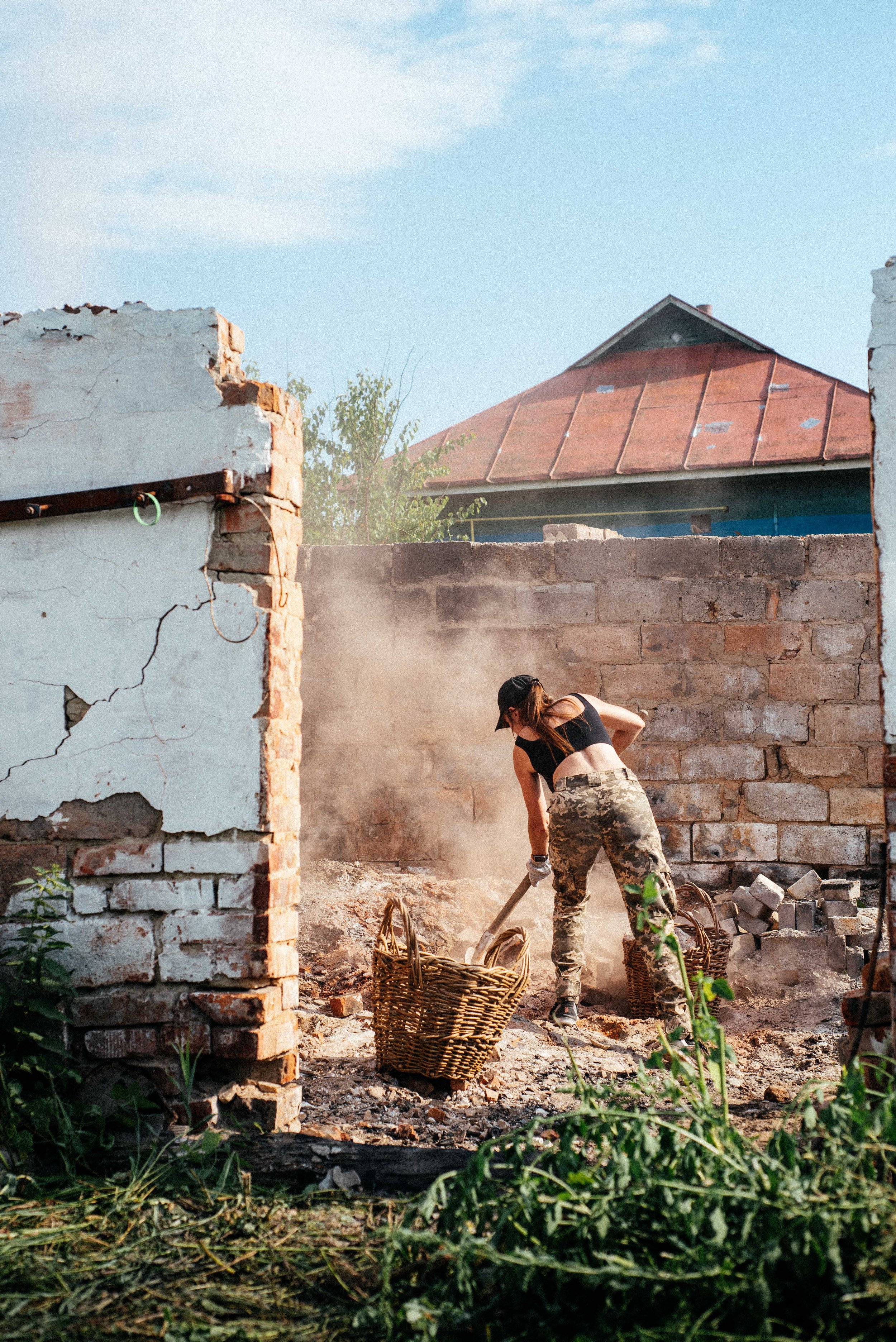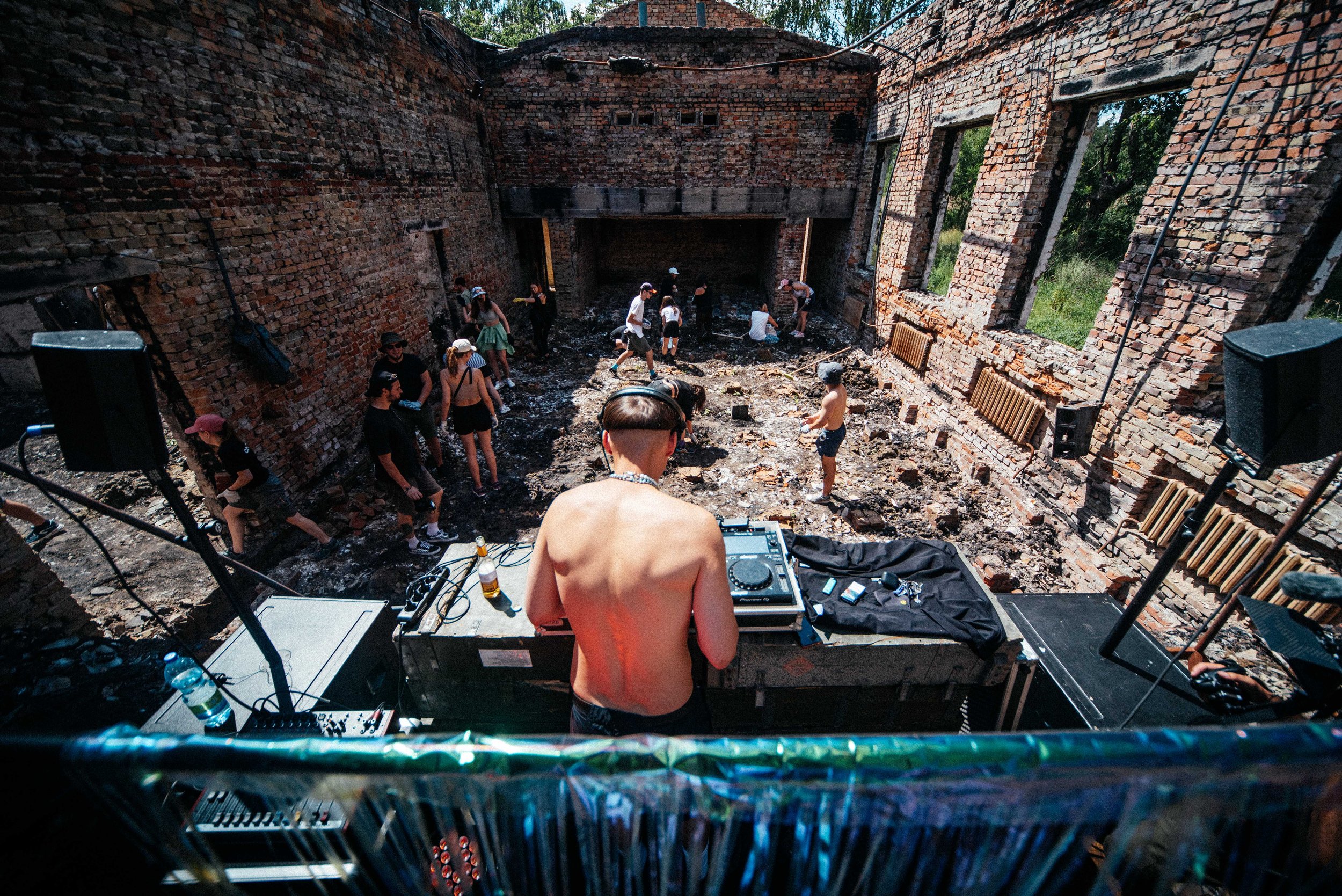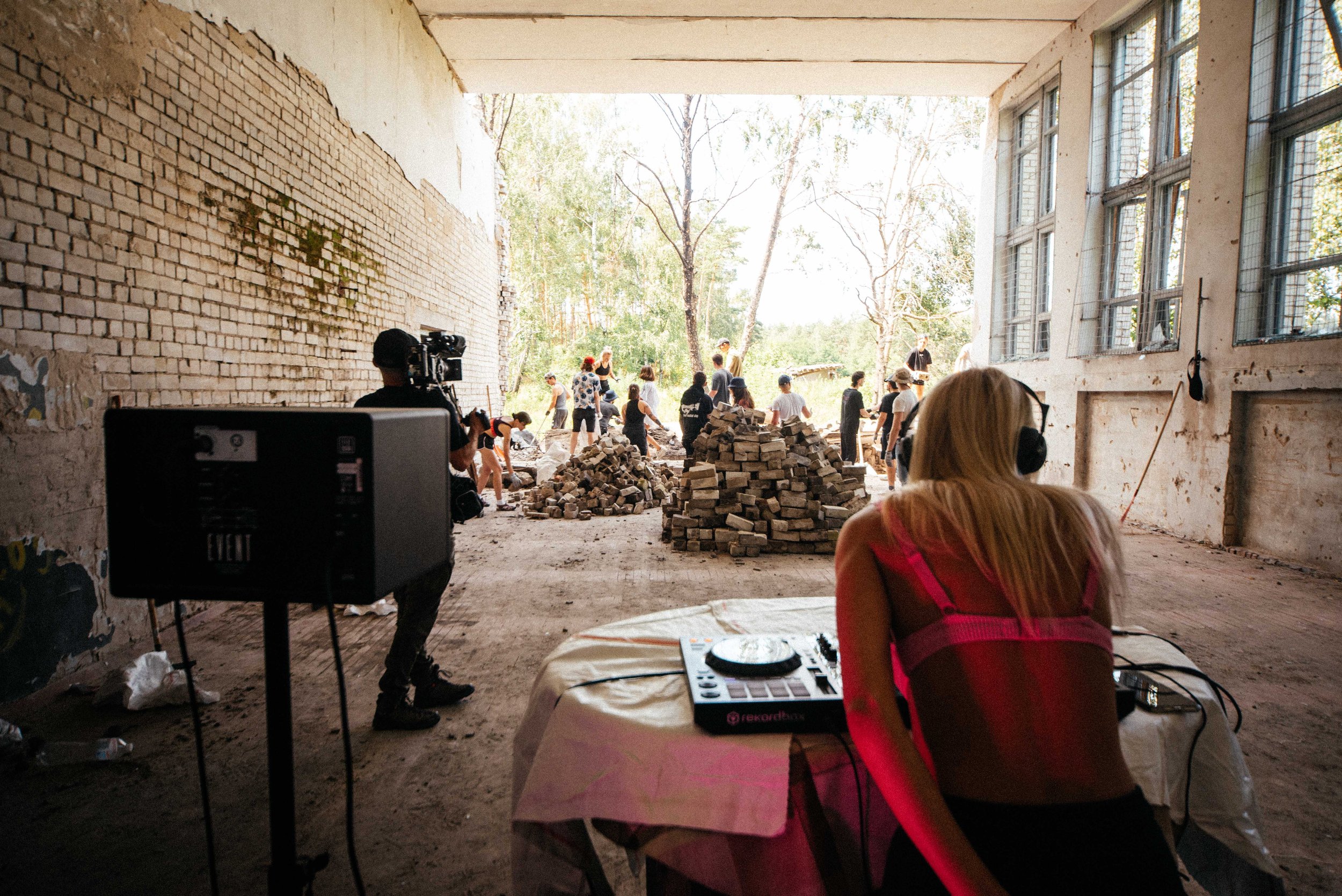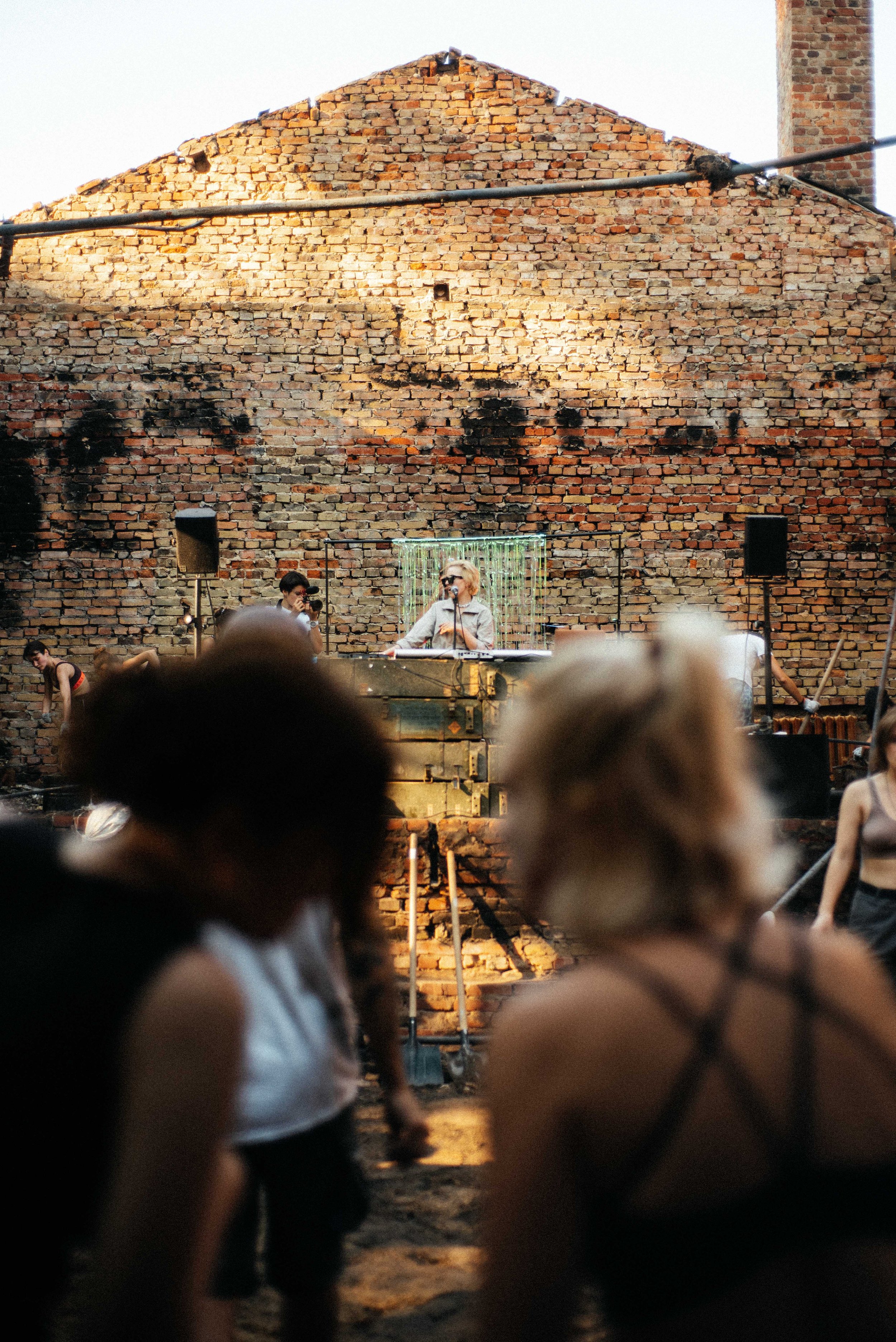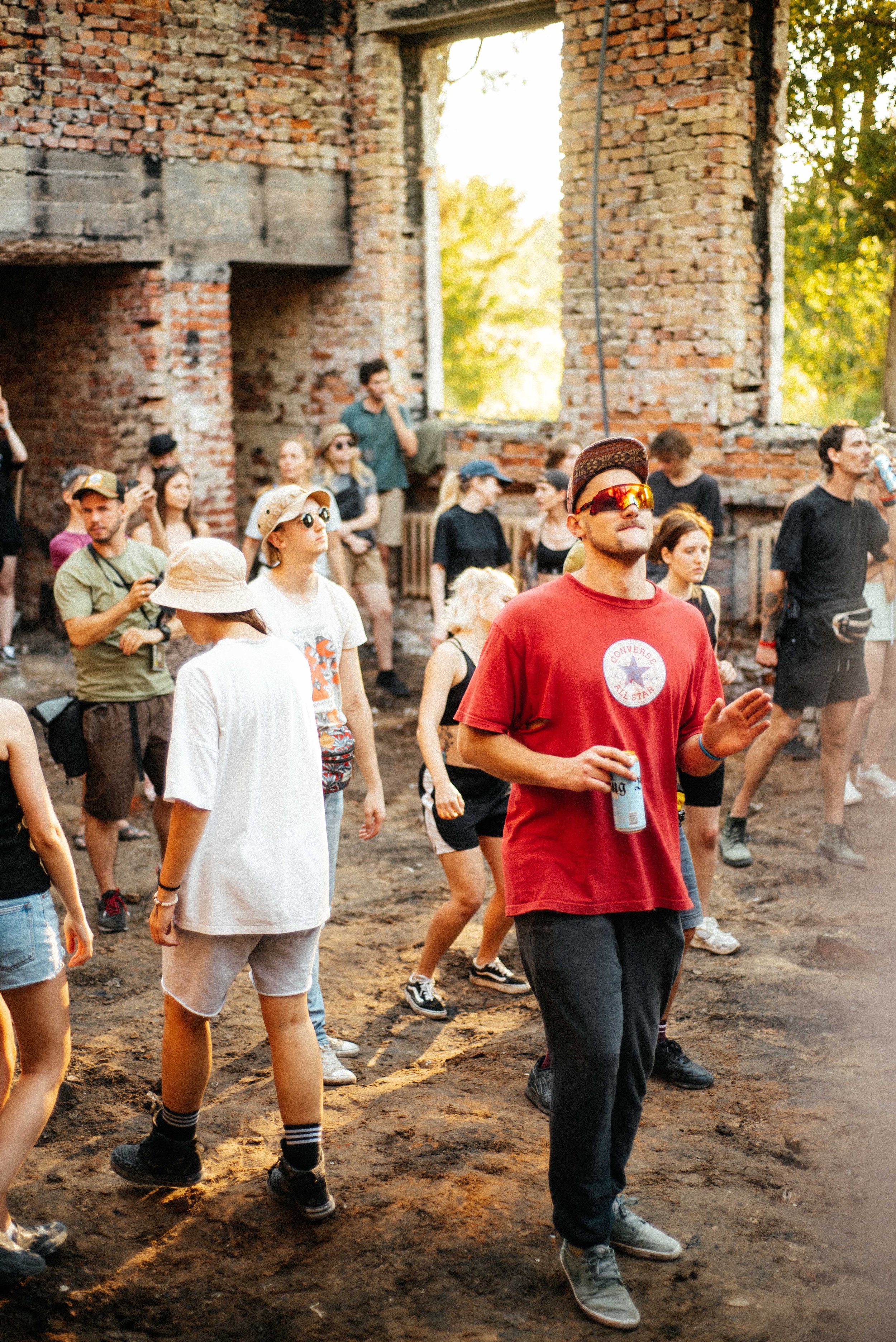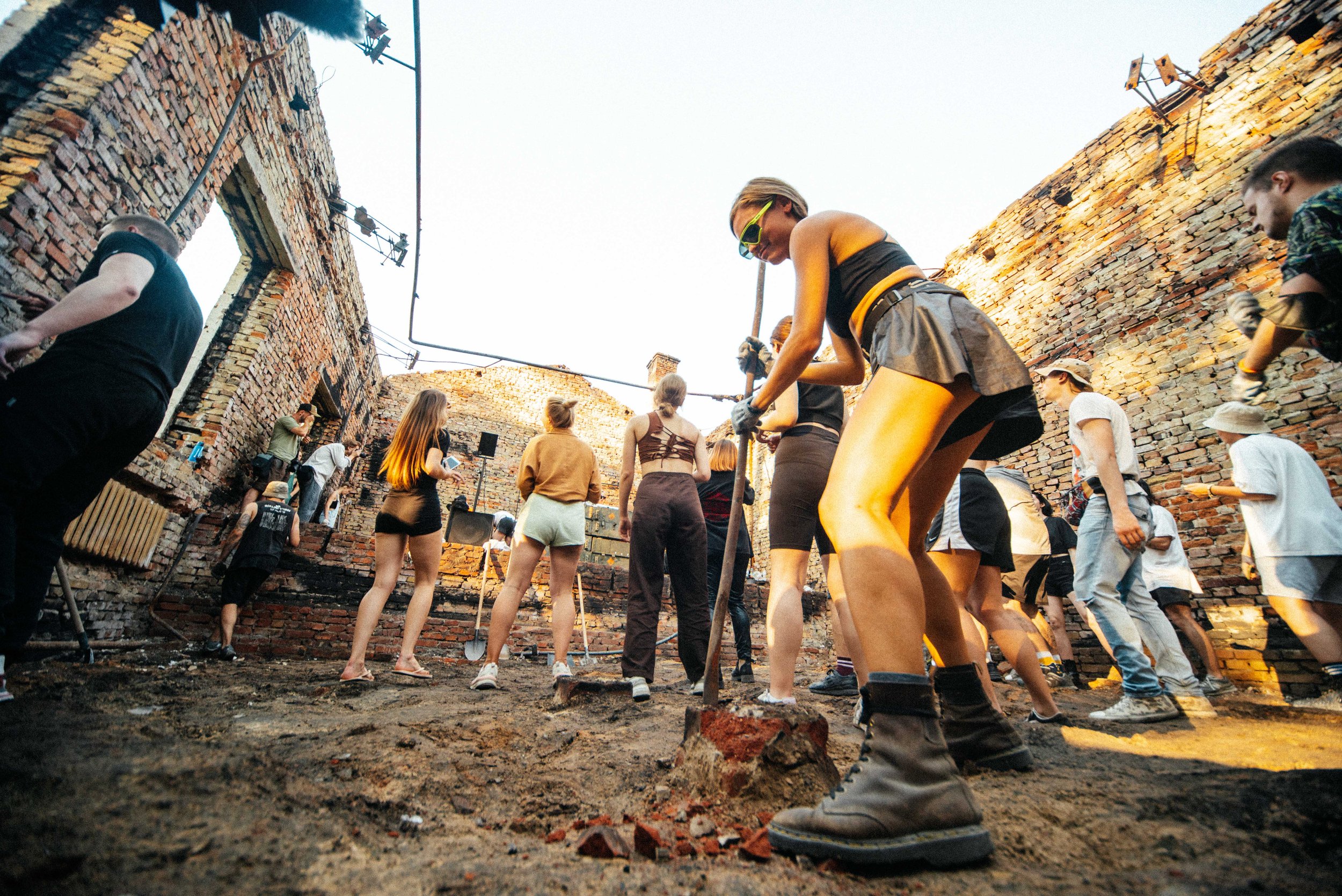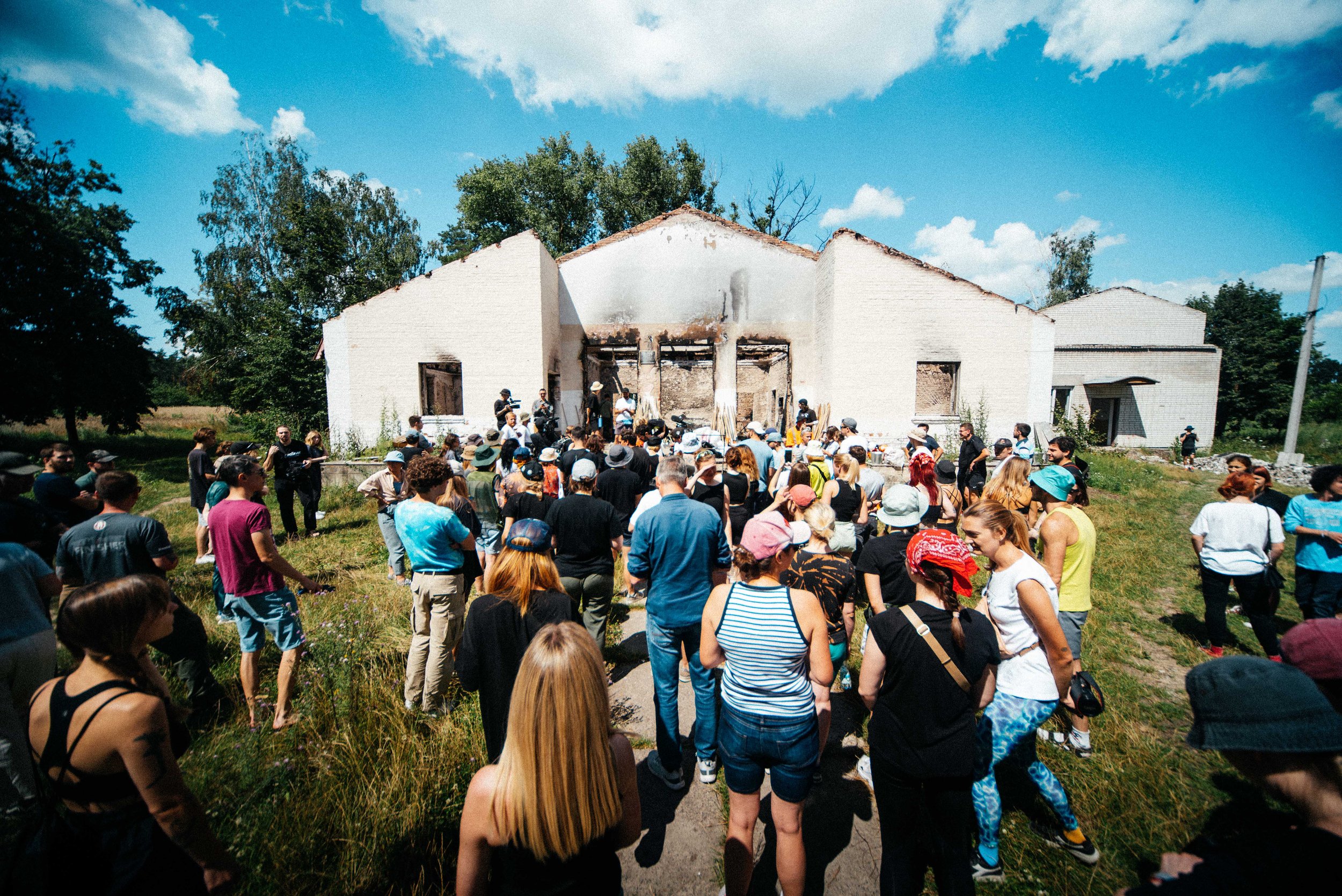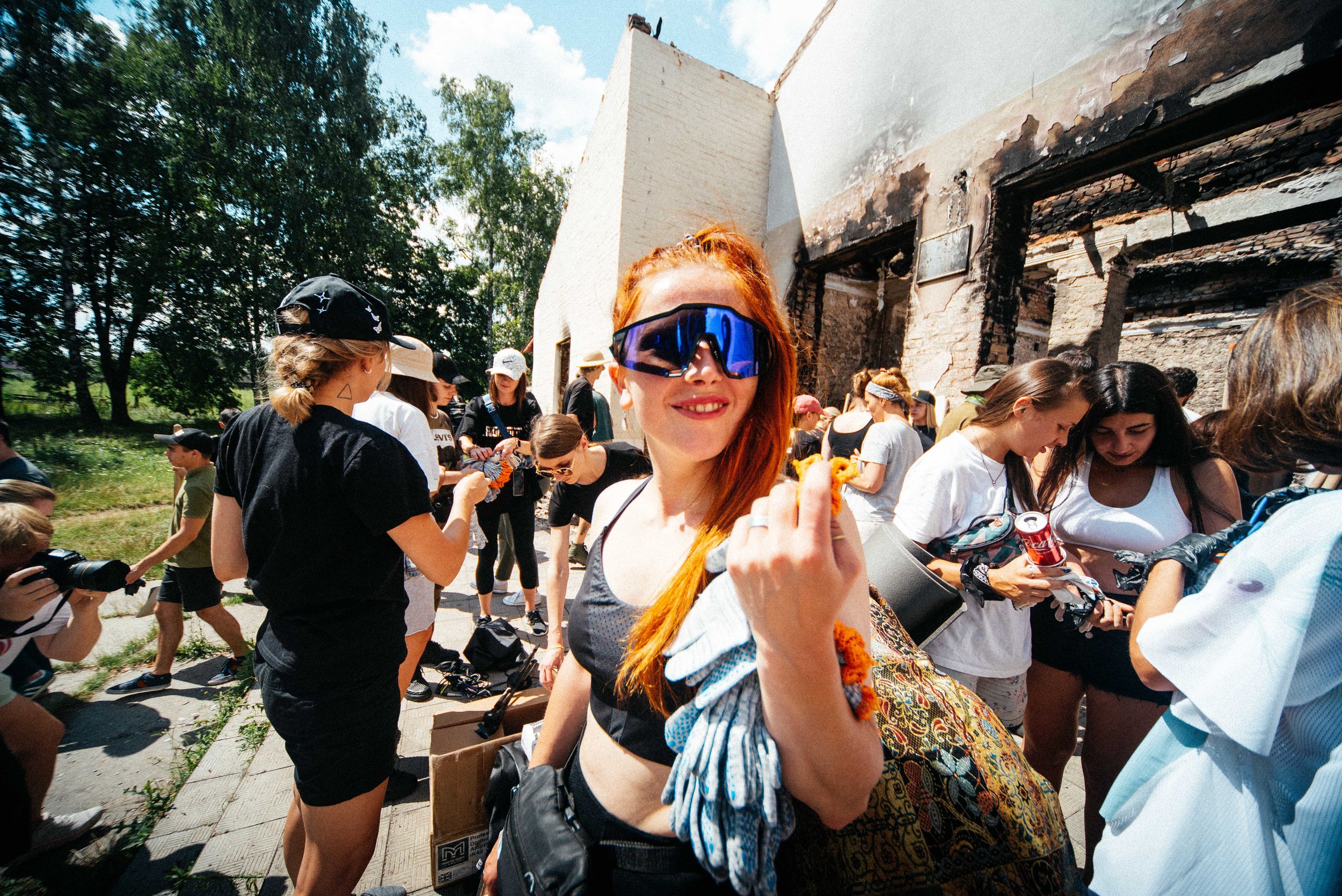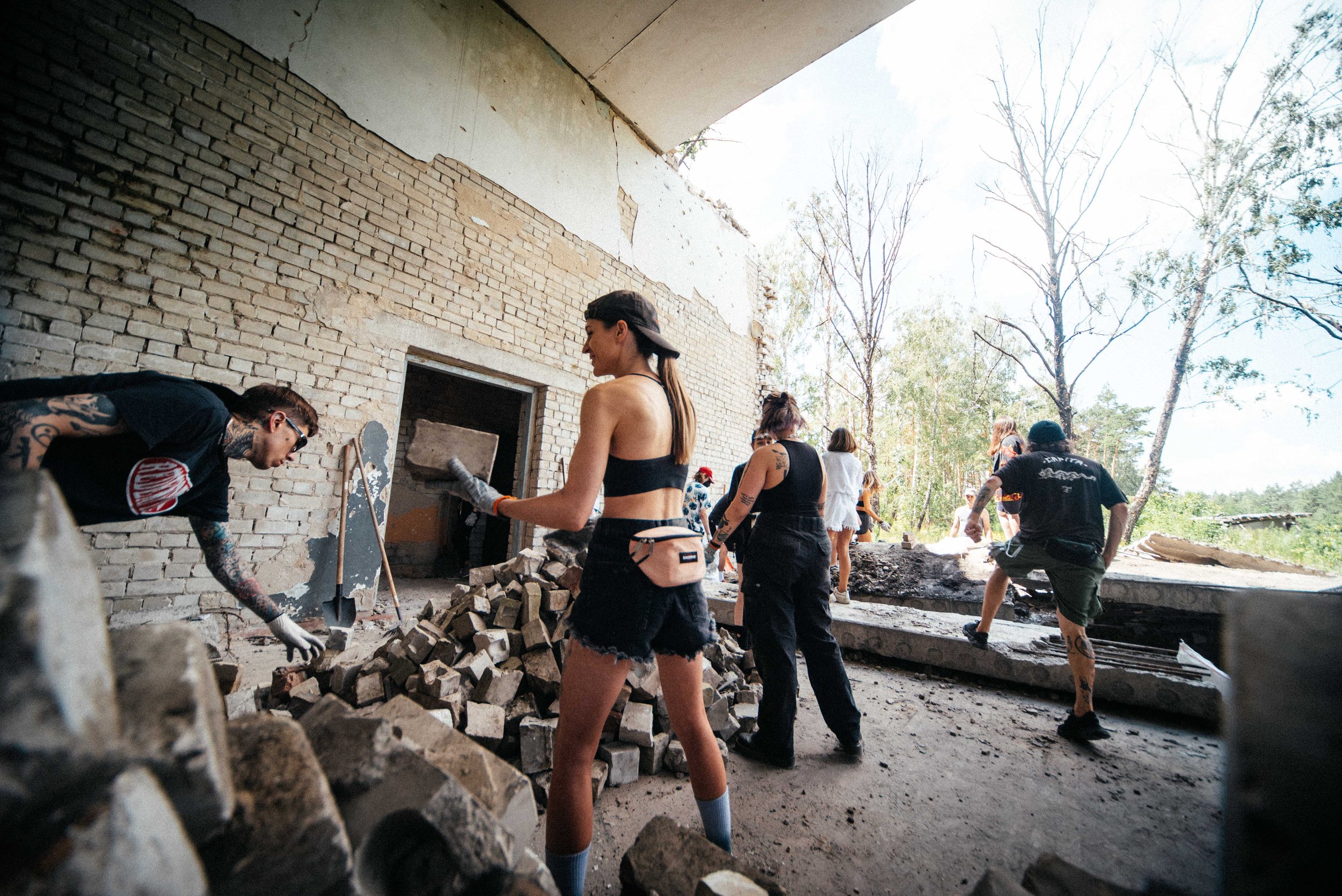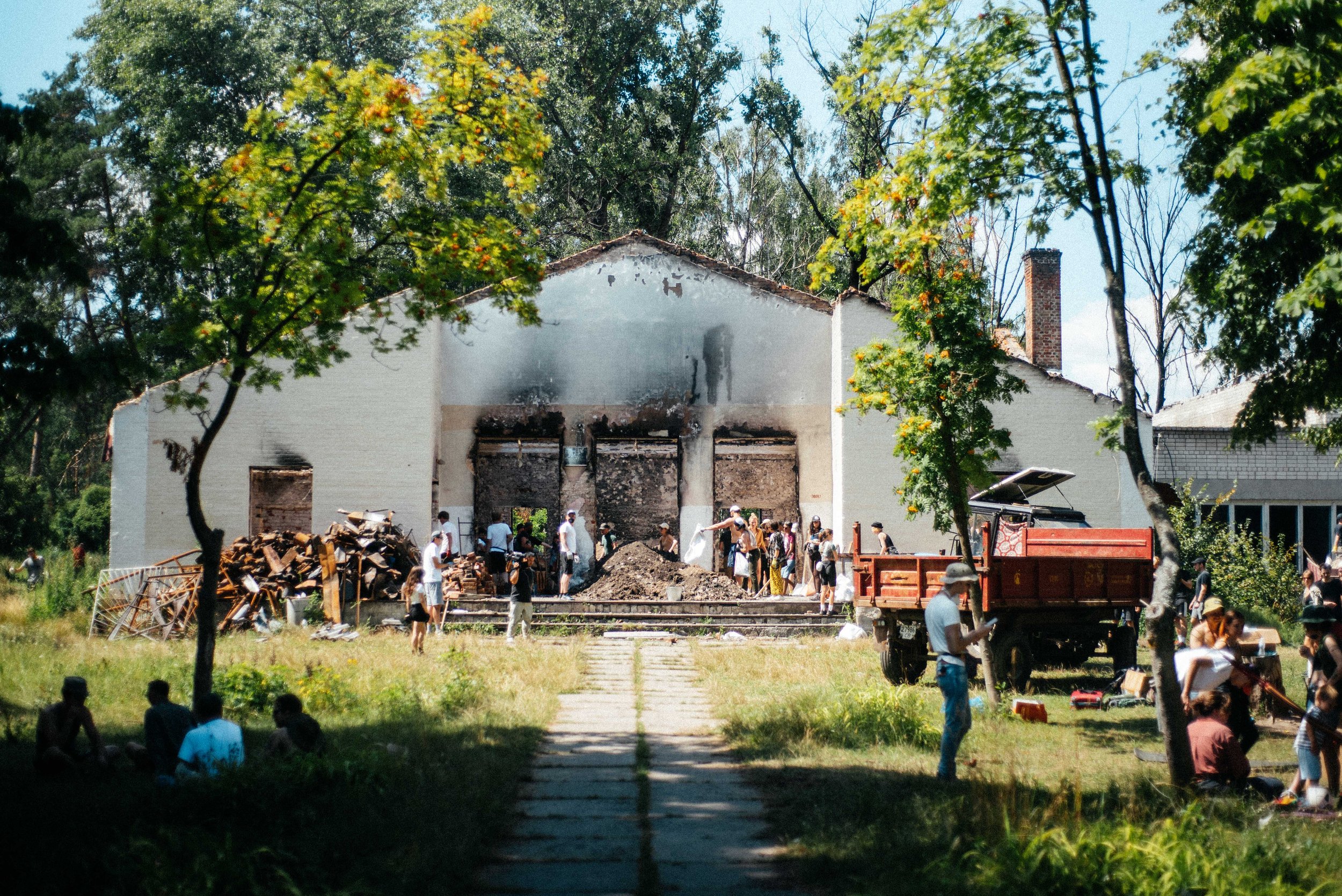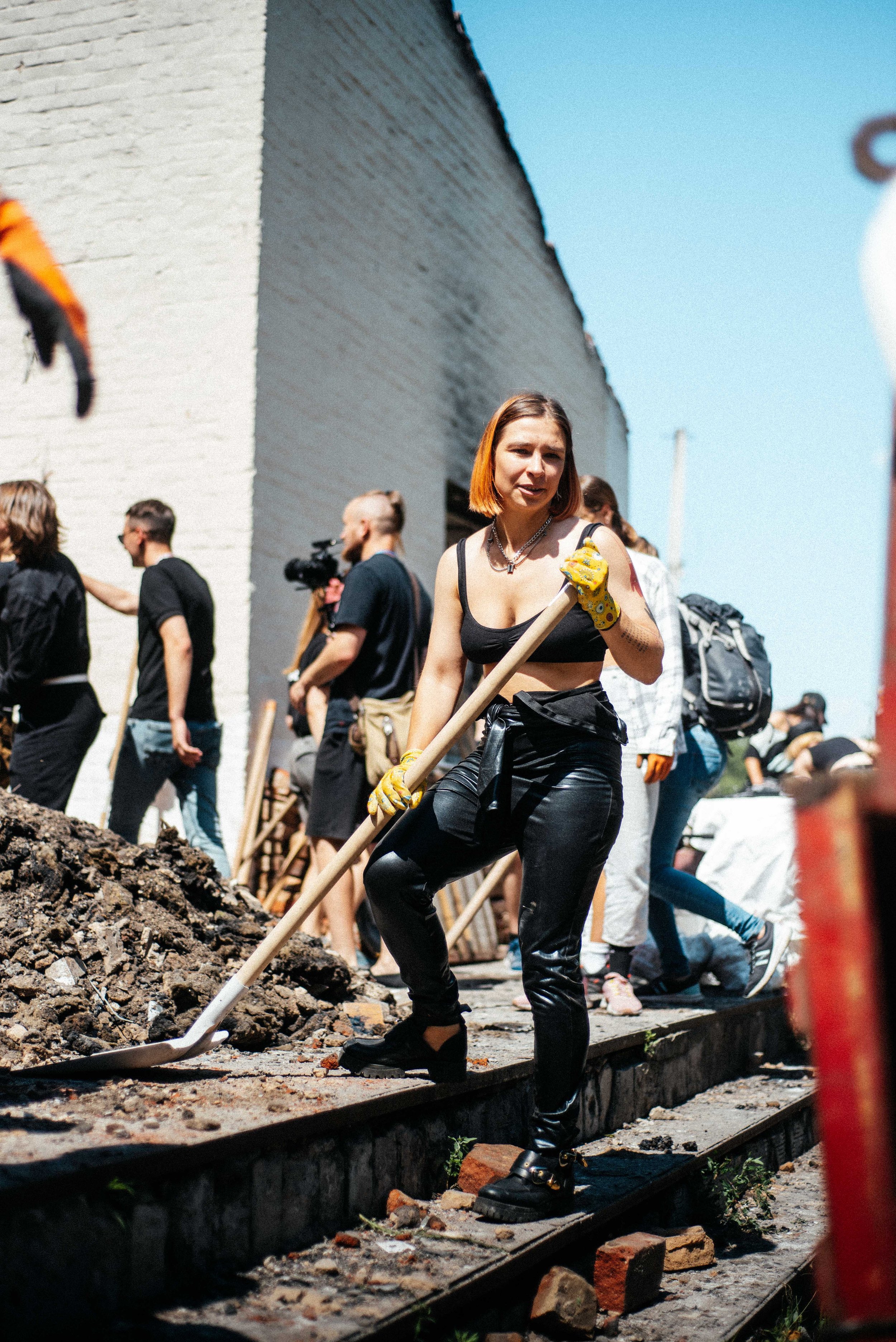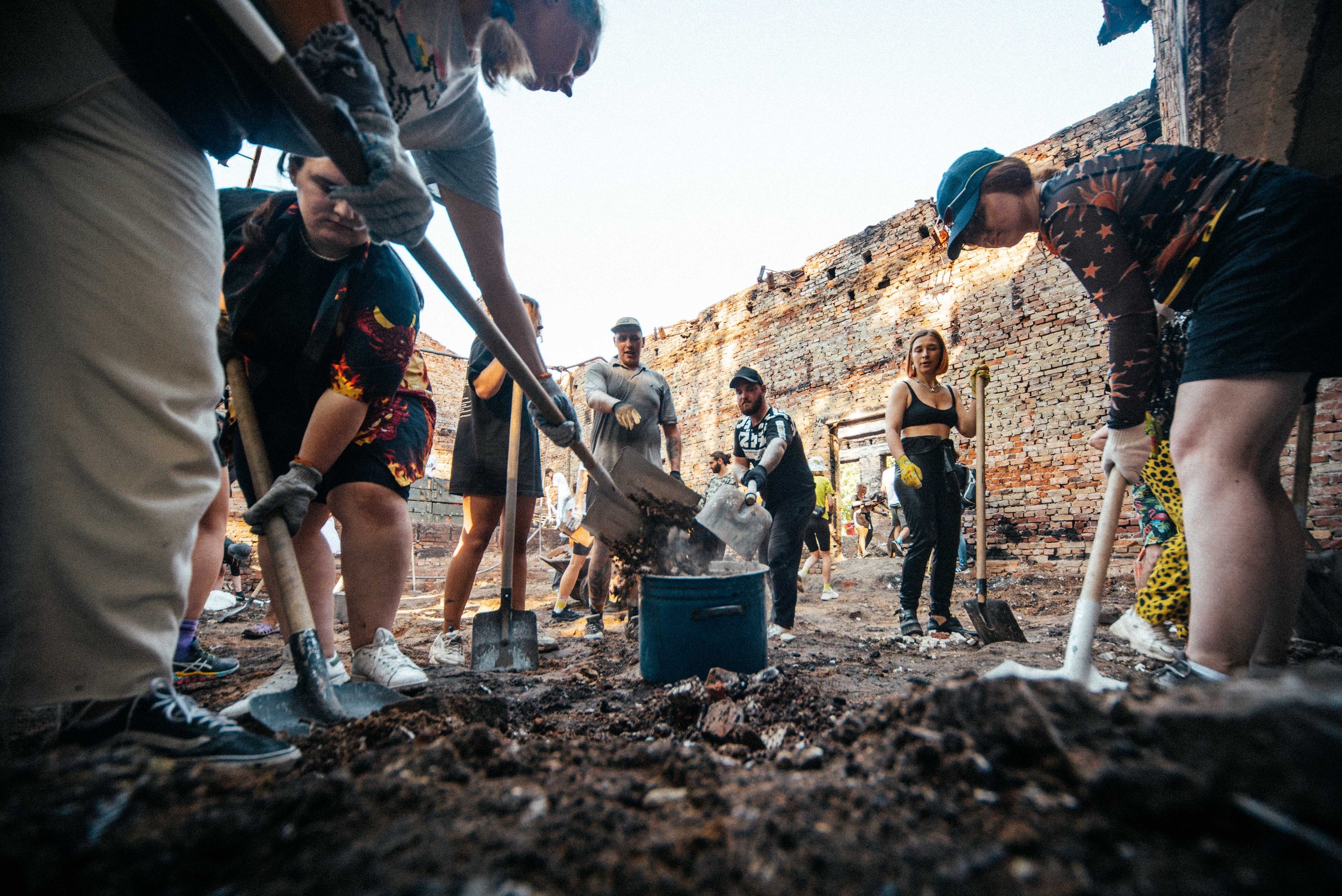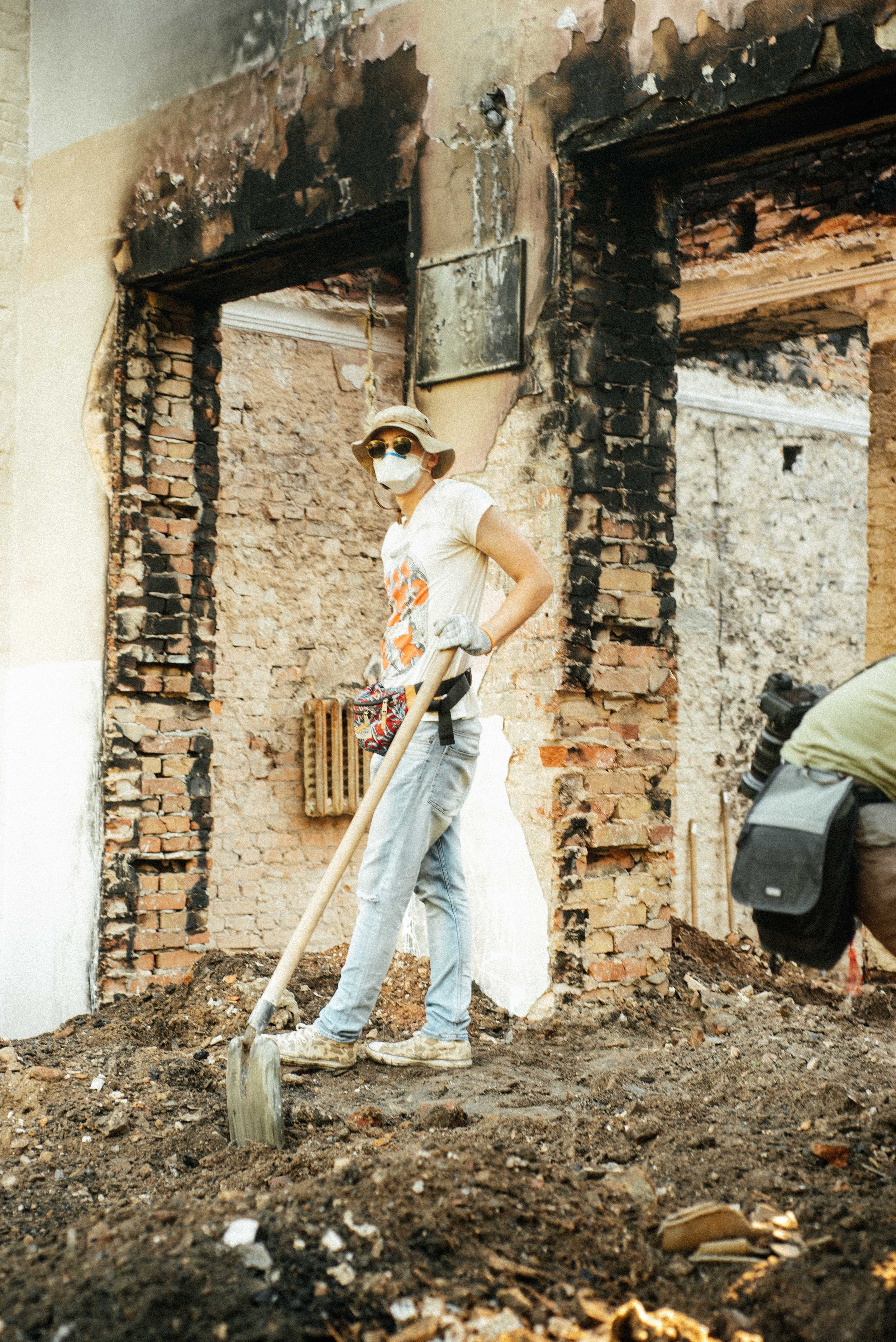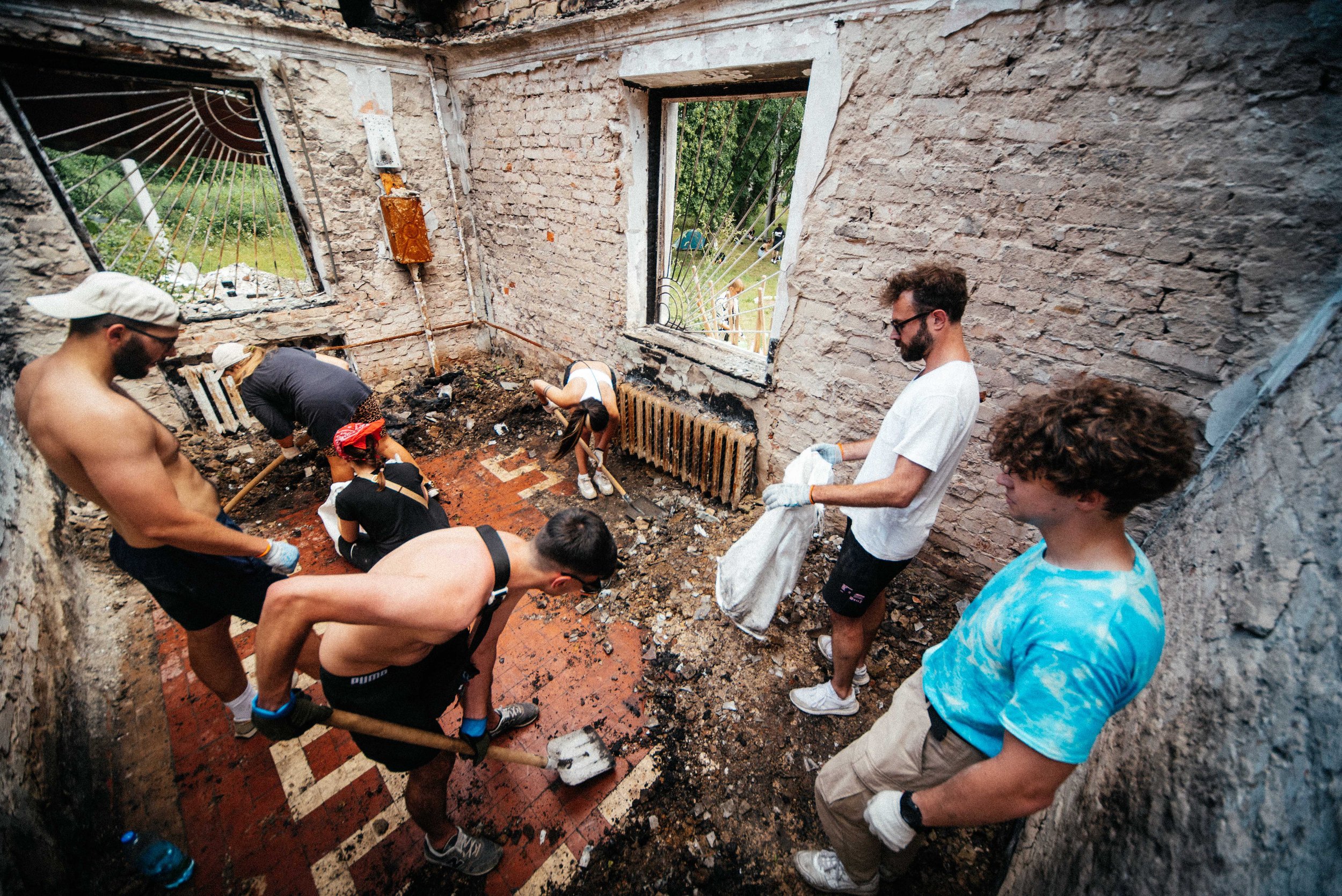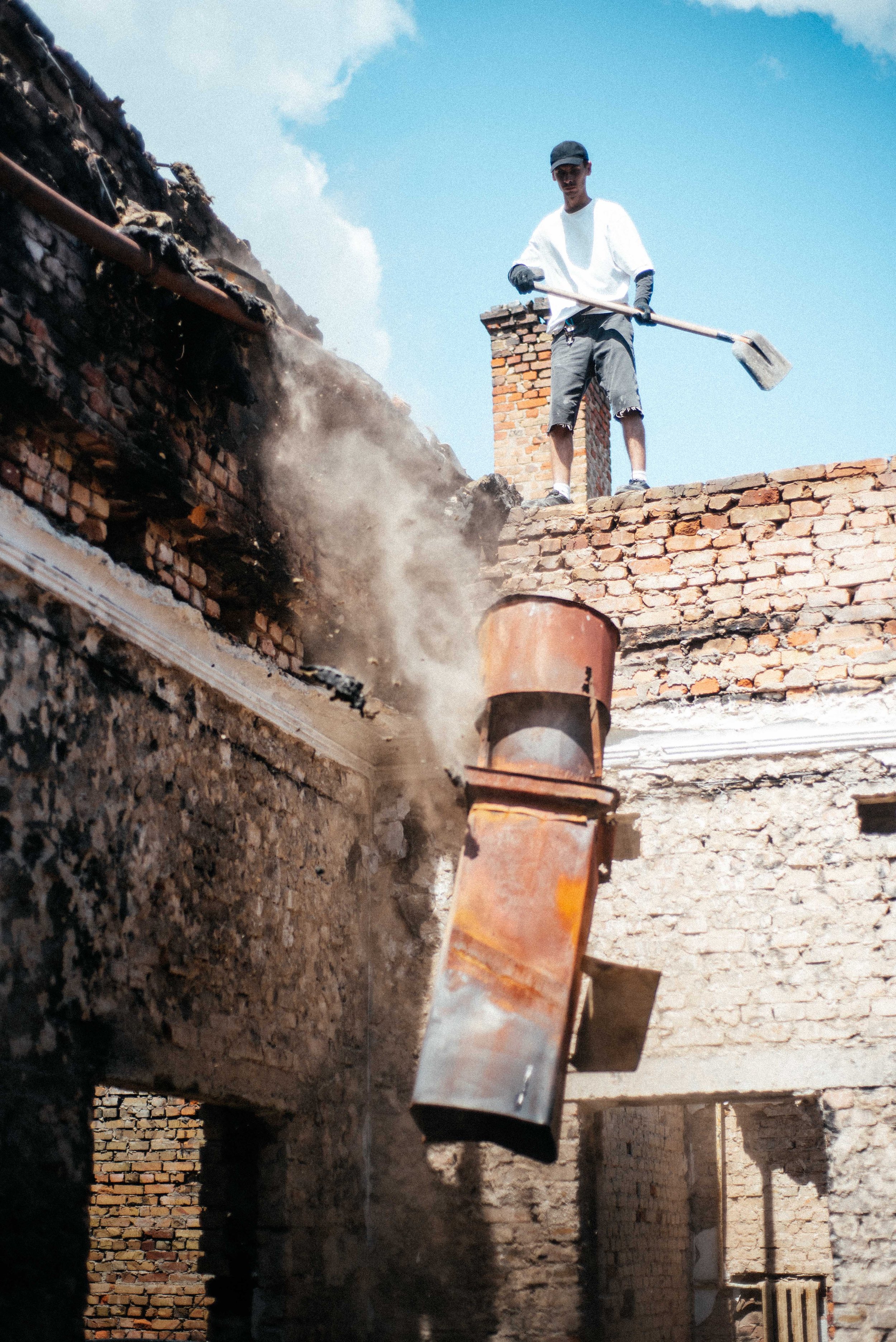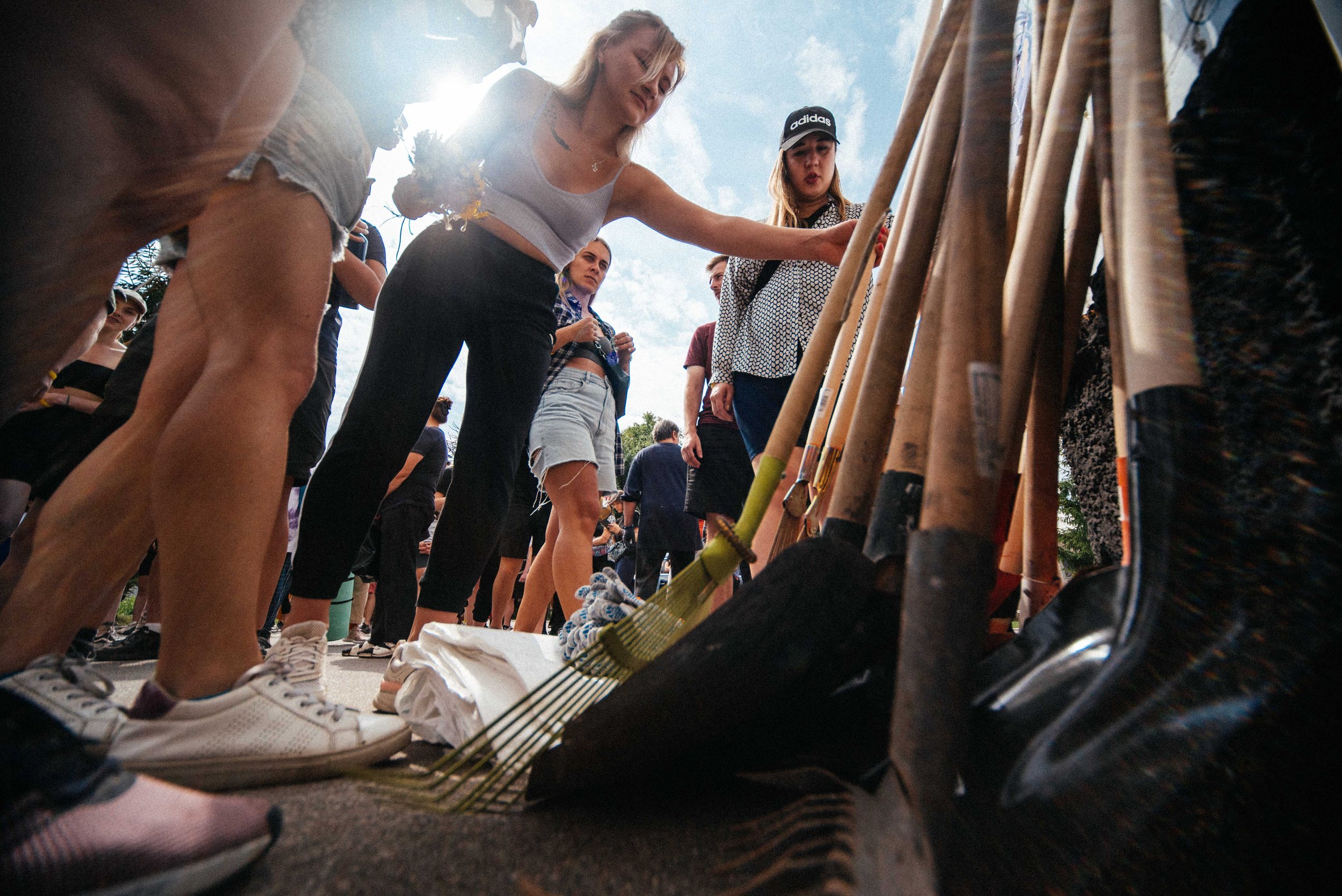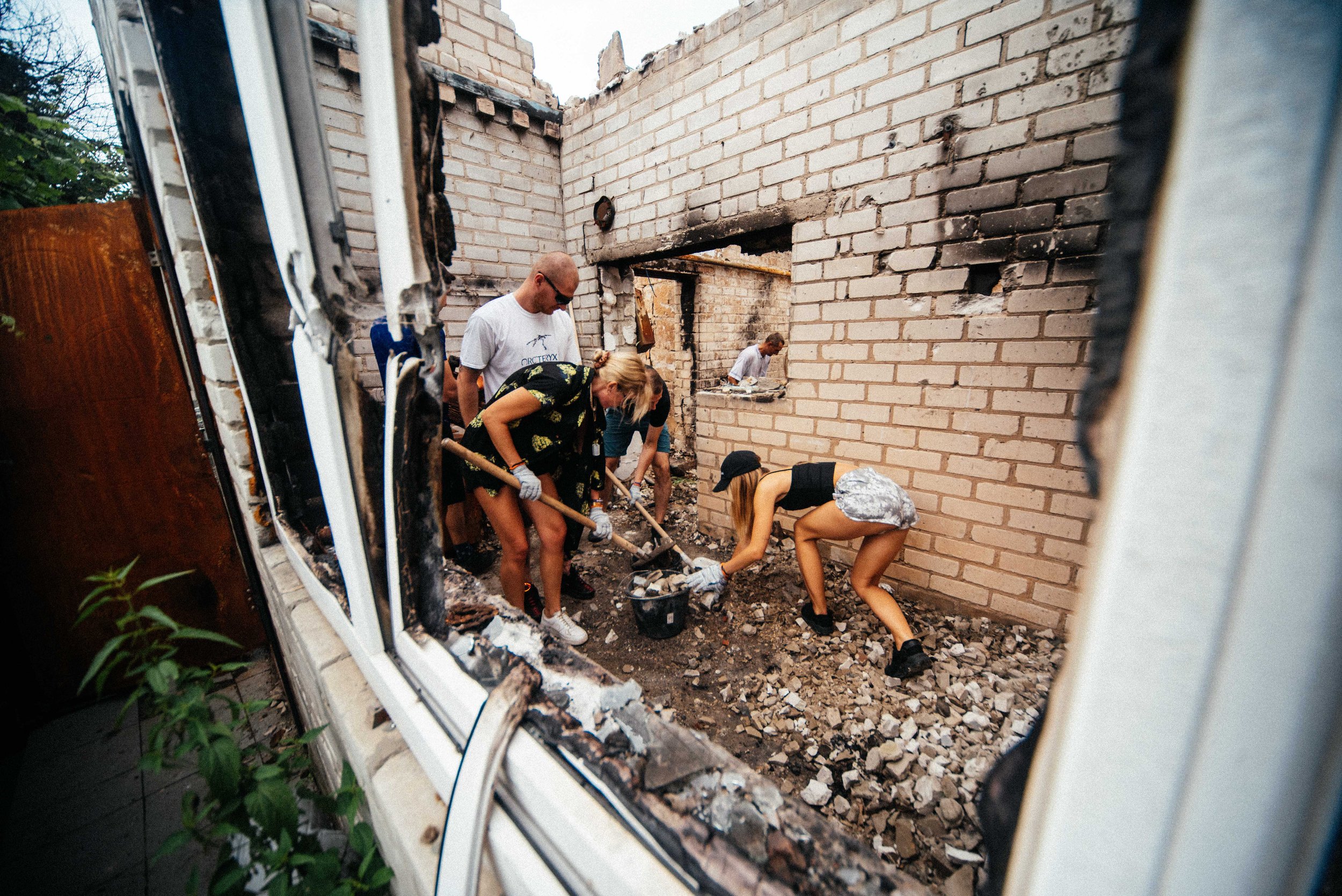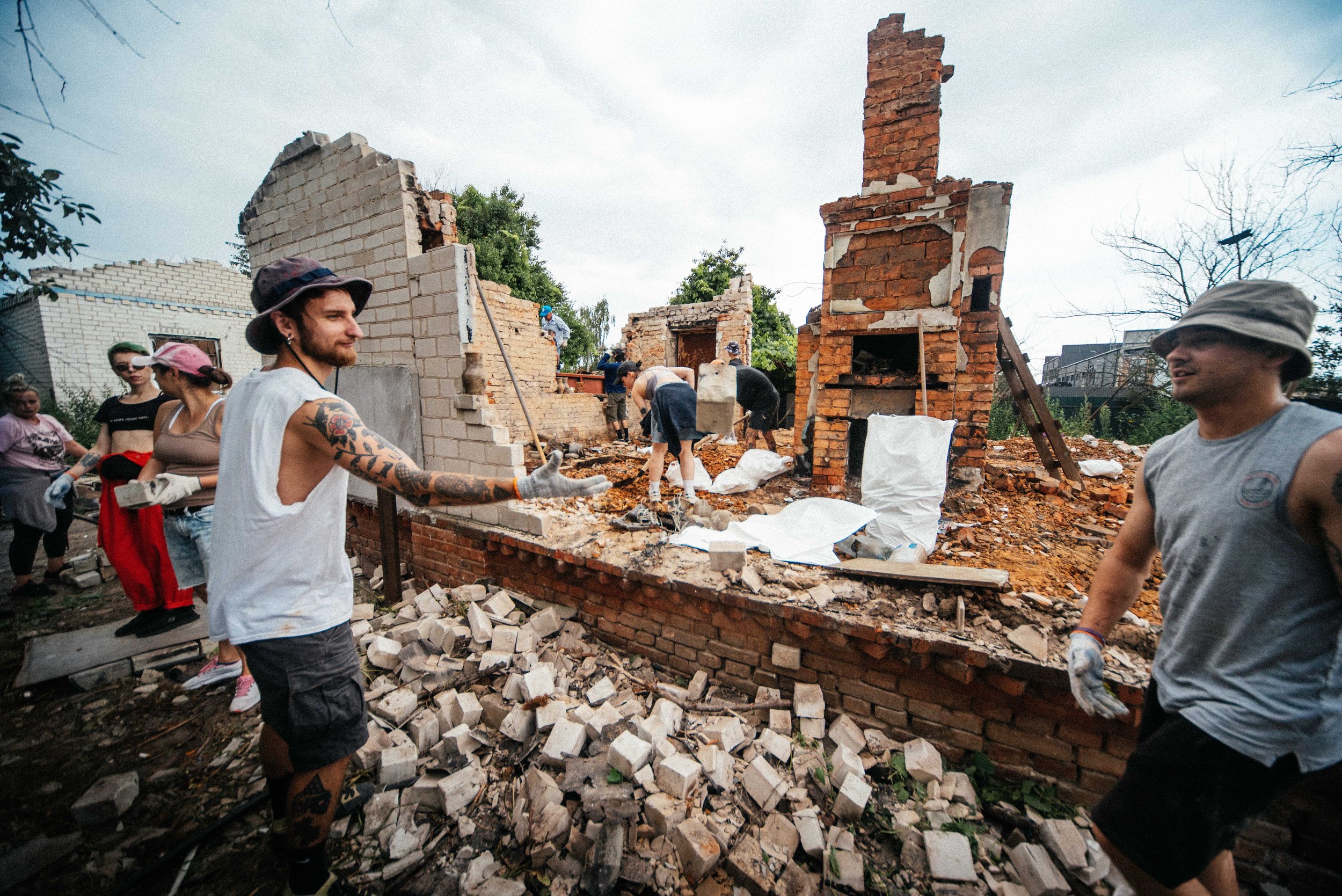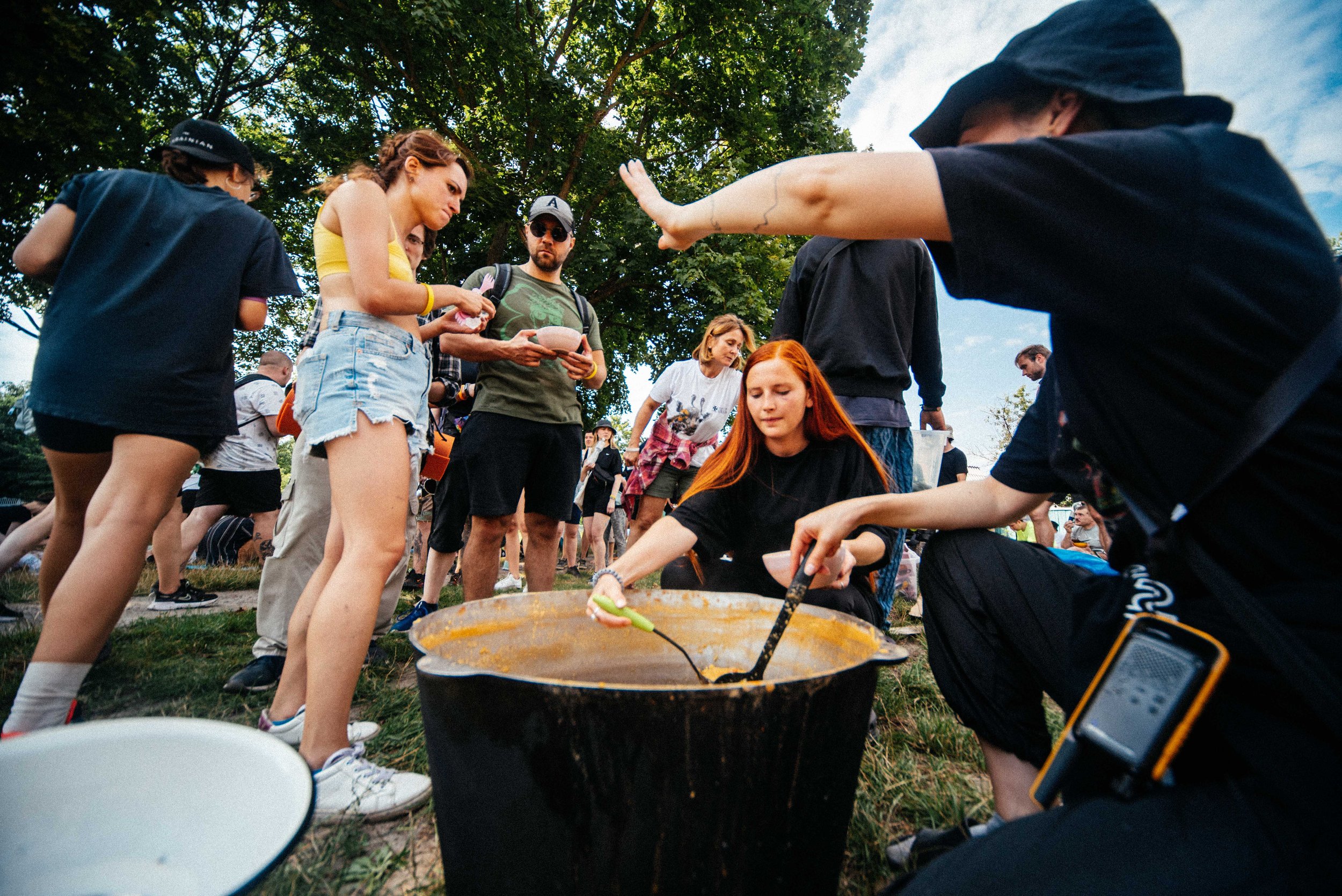Raving ruins
Young volunteers from the “Repair Together“ movement arrange techno parties where young people join forces for rebuilding Ukraine after the war. Now ravers gather hundreds of people to clean debris while dancing to DJ sets and rebuild houses that have been destroyed by Russian military. We spoke to Dmytro Kyrpa, the founder of the “Repair Together“ about the inspiring project.
Dmytro Kyrpa – is one of the founders of the “Repair together” movement. He is responsible for organizational issues and finances. Apart from being a member of the team of people who help those that suffered from the war, Dmytro is a product manager in the field of IT.
Aleksandra Silik: How did the idea of the project come up?
Dmytro Kyrpa: I returned from Western Ukraine in mid-April. Watching the news, I was in such a terrible state. And then reports began to appear that the Kyiv, Chernihiv and Sumy regions were de-occupied, but much attention was focused only on the Kiev region. My friend and I decided to visit the Chernihiv region. We understood that the same horror had happened there, but no one reported about it. We arrived in the village of Yahidne*. There, 356 people were kept for 26 days in the basement of a school, which is just 120 square meters. Unfortunately, 12 elderly people died there due to terrible ventilation conditions. And then we saw what happened to the houses. Every fifth house was completely destroyed, and others were damaged in one way or another. People live either in the open air, or in ruins with a leaking roof. We realized that we can fix at least some part of the houses and provide targeted assistance to the families in need. And we just started doing such repairs. At the same time, we also initiated gathering people to come to the place and helping with cleaning. Such events are called „toloka**“ in Ukraine.
*Yahidne - a village in Chernihiv region located 140 km north of Kyiv, near the state border of Ukraine with Belarus. The Russians occupied it on the second day of the full-scale invasion. People were kept in the basement of the school for about a month - from March 3 to March 31. The Russian military made the building of the educational institution their headquarters.
**Toloka - is an ancient Ukrainian tradition, when people gathered in villages in order to perform some urgent work in a group that required many people.
During the three months of the project, the “Repair Together“ movement arranged seven massive debris clean-ups. The last one was in Ivanivka. Volunteers focused on the villages in the Chernihiv region that suffered from the occupation. Usually more than 200 people join to clean up the wreckage. “Repair together” team also plan to rebuild bombed houses and set up new modular homes in these communities. © Pasha Youz
AS: Who are the people that come and help?
DK: There are seven people at the core of the team. But we have grown quite a lot. In two weeks (the interview was conducted on 2nd of August) we will start a construction camp and rebuild at least 13 completely destroyed houses. In order to achieve this, we are now actively communicating with entrepreneurs and celebrities to help finance it. Our strategy is not to attract donations, but to receive investments, mostly from businesses with benefits for both sides. We have created a certain list of advertising products for Ukrainian businesses. For example, we go to a building materials company and say that we have a house that needs $15,000 to be rebuilt. We offer them to provide us with materials and a small amount of money. Then we will build a house from these materials, but in the process also make a film about it and show it on YouTube and Instagram. Another part of the project are the clean-up raves, which have drawn the attention of the world.
The “Repair together” team has already organized two raves with DJs. In about 4 weeks volunteers plan to hold a large-scale two-city rave in Ivanivka, where young people will be cleaning debris, and at the same time the rave will take place in Berlin. Both events will be broadcasting on big screens. This way, volunteers emphasize the solidarity of young people all over the world against the war in Ukraine. © Pasha Youz
AS: How did you come up with the idea of clean-up raves? What kind of music do you choose and who chooses the music?
DK: We see that the level of destruction in Ukraine is so high that we need people who will join as volunteers permanently. It means that it is necessary to make volunteering part of the usual lifestyle for our generation. Volunteering must replace what was recreation for us before the war. It should be interesting, entertaining, people should make contacts, fall in love and have fun. It just happened that we have similar tastes in music, we all went to similar raves and clubs. We have people in our team who understand this very well, and they shape the agenda.
AS: How do the locals react to your on-site cleaning?
DK: Cool, everyone loves us. For example, during the last rave, we were cleaning the cultural centre. In fact, we were sure that it was important for the locals. But then a man about my age came to us and said: "I was the head of this cultural centre. It had been prospering for the last 5 years, many artists had been here, many parties had been organized. Then, the occupiers came and destroyed everything."
The last “clean-up rave” happened in the cultural centre of the village Yahidne in the Chernihiv region, which burned down after Russian shelling. The volunteers dance to electronic music performed by DJs and live artists as they move rubble, construct new homes and rebuild old ones. © Pasha Youz
AS: What challenges do you face and what kind of help do you need most now?
DK: We are growing very fast, and the organization is not ready for it yet. That is why we work overtime and without days off. Of course, this is a question of money. We cannot attract additional people because we still do not pay salaries. For three months, we allocated UAH 10 000-15 000 per person (approx. EUR 250-375), but with this amount for which we can attract specialists. So we need the attention of funds.
If we talk about Europe, more informational support would be great. Our initiative has the potential to turn into a global movement. We live in a very difficult time, a time of unpredictable events. Two years ago, no one expected a global pandemic or war in Ukraine. The same concerns environmental problems. International institutions proved to be insufficiently powerful. Along with this, there is a whole generation of talented and well-educated people who have a desire to change this world. Therefore, our current mission is to create an international movement of young people who will direct their skills, experience, and abilities to solve global crises.
In October, the volunteers plan to hold an exhibition in the centre of Kyiv. It will be dedicated to the role of young people in the resolution of contemporary crises. They also want to involve influencers and create collaborations with representatives of the fashion industry to rebuild destroyed buildings. © Pasha Youz


